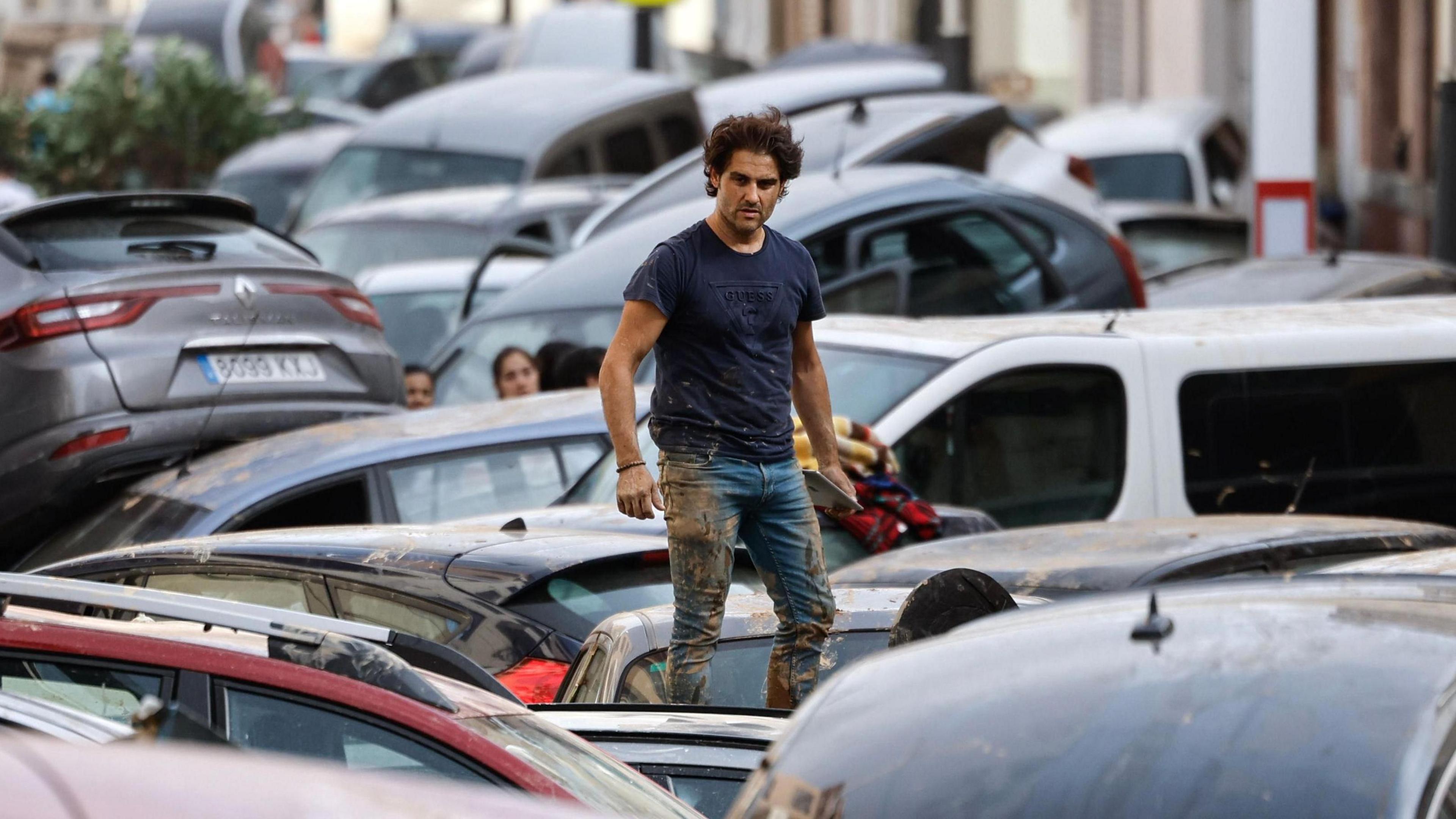Students take part in mock climate conference
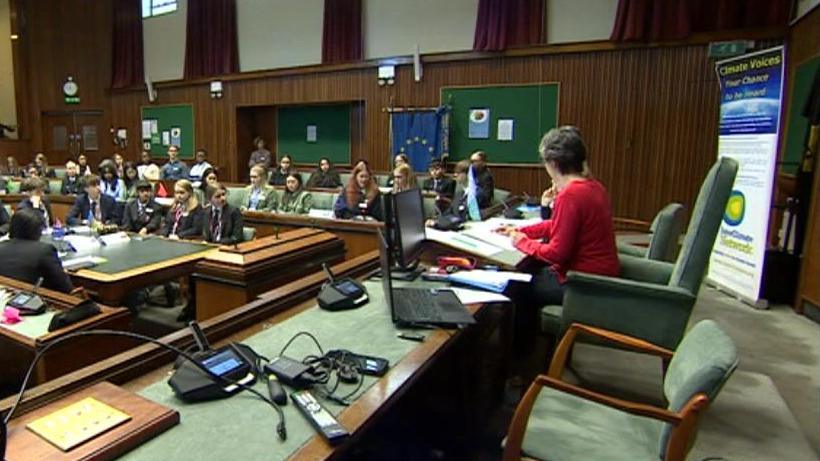
The model conference took place in Cheltenham as world leaders seek agreement in Baku, Azerbaijan
- Published
Students from 14 secondary schools had a go at negotiating climate policy in a mock conference.
To coincide with the United Nations climate change conference (COP29) in Baku, Azerbaijan, county students met at Cheltenham Borough Council's chambers to try and set funding goals and generate joint proposals.
Chosen Hill pupil Leo attended the summit and said his school's eco team is "concerned" about climate change.
The conference saw each student represent a mix of developing, emerging, and developed countries.
Australia, Barbados, India, the Marshall Islands, the UK, and the United States were among the countries represented.
The students had to agree resolutions on key themes and put forward policy positions using carefully chosen arguments in a conference debate that mirrors the UN negotiations and the drive for consensus.
Paul Baker, mayor of Cheltenham, formally opened the conference. Cheltenham Borough Council hosted and supported the event, which included a grant from Cheltenham Community Pride.
Michila Critchley from the charity InterClimate Network, which organised the day, said students could get "so many things" out of participating.
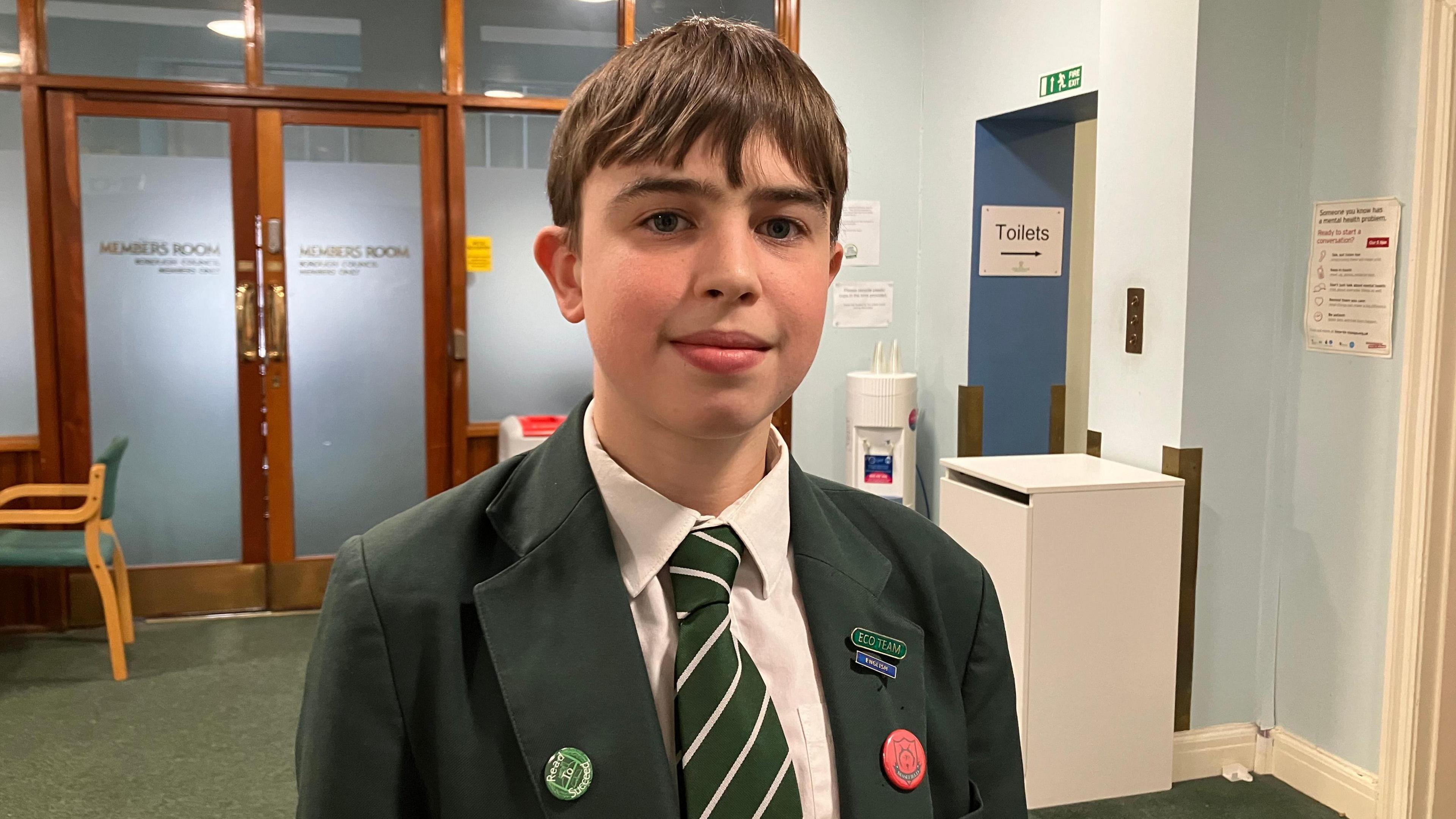
Leo said it was important to "meet somewhere in the middle" when countries disagreed with one another during the conference
Ms Critchley said: "It's about building agreements, seeing what solutions can work and then seeing how you can do something about them."
Leo, 13, is a member of his school's eco team. He and others put stickers around the school, reminding their peers to turn lights off.
"If you say one thing, the other countries might disagree with it, so you've got to try and meet somewhere in the middle," he said of the mock conference.
"In the eco team, [climate change] is something we're concerned about, especially the glaciers that are melting."
After launching on 11 November, COP29 will finish in Baku on 22 November.
Get in touch
Tell us which stories we should cover in Gloucestershire
Follow BBC Gloucestershire on Facebook, external, X, external, and Instagram, external. Send your story ideas to us on email or via WhatsApp on 0800 313 4630.
Related topics
- Published15 November 2024
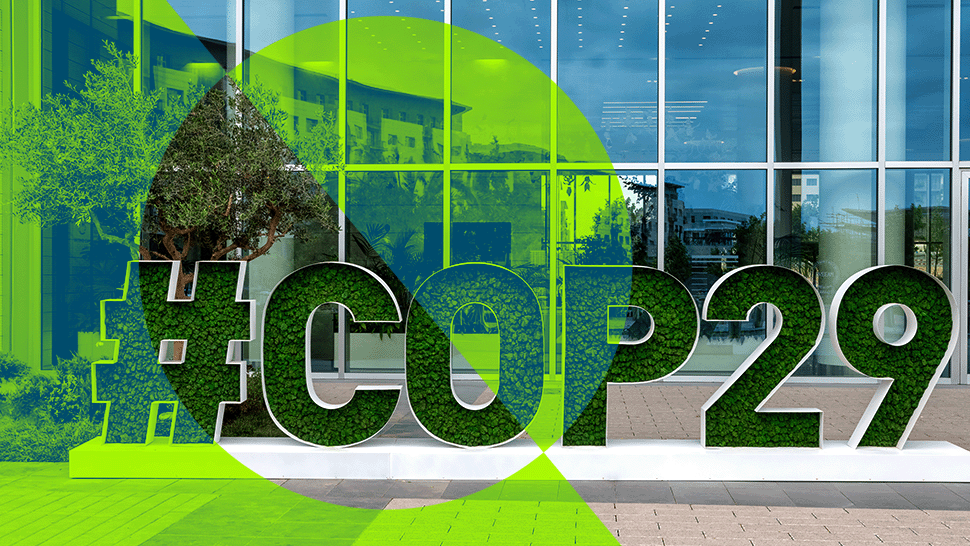
- Published15 November 2024
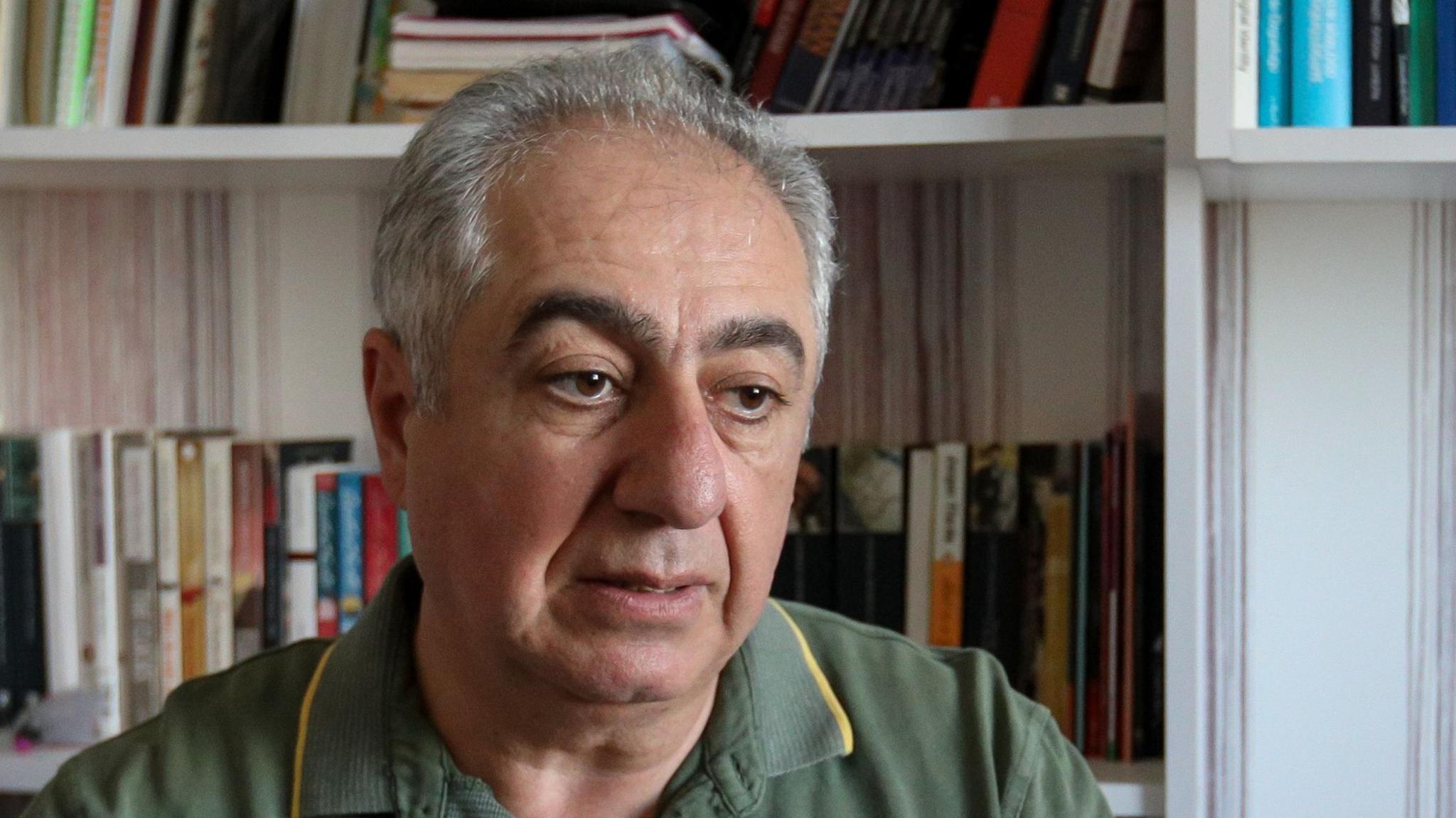
- Published19 November 2024
